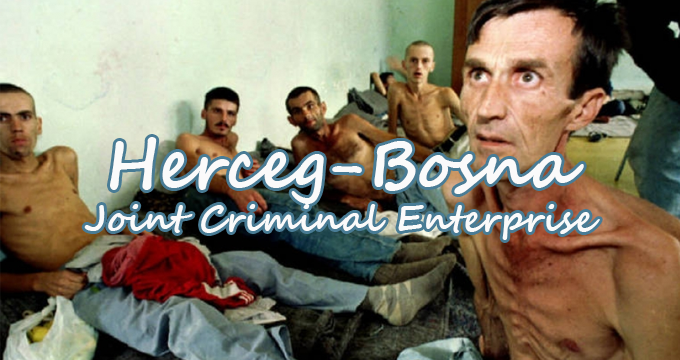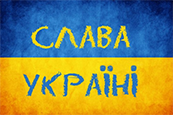The Croatian Republic of Herzeg-Bosnia (Bosnian: Hrvatska Republika Herceg-Bosna) was an unrecognised entity in Bosnia and Herzegovina that existed between 1991 and 1994 as a result of secessionist politics during the Bosnian War. The capital city of Herzeg-Bosnia was Western Mostar. Herzeg-Bosnia ceased to exist in 1994 when it was joined to the Federation of Bosnia and Herzegovina upon the signing the Washington Agreement by the authorities of Croatia and Bosnia and Herzegovina. One of the cantons of Federation still partially uses the name Herzeg-Bosnia Canton. However, this name has been deemed unconstitutional by the Federation Constitutonal Court
The ruling party in the Republic of Croatia, the Croatian Democratic Union (HDZ), organized and controlled a branch of the party in Bosnia and Herzegovina, the Croatian Democratic Union of Bosnia and Herzegovina (HDZBiH). By the latter part of 1991, more extreme elements of the HDZBiH, under the leadership of Mate Boban, Dario Kordić and others, with the support of Franjo Tuđman and Gojko Šušak, took effective control of the party.
On 18 November 1991, the extreme elements of the HDZBiH, led by Mate Boban and Dario Kordić later convicted by ICTY of war crimes, proclaimed the existence of the Croatian Community of Herzeg-Bosnia, as a separate "political, cultural, economic and territorial whole," on the territory of Bosnia and Herzegovina. Because of ethnic cleansing of non-Croat population and crimes against humanity as well as war crimes committed by the Croatian authorities on Bosniak civilians, HDZ had much of influence in municipalities claimed by Herzeg-Bosnia.
Following Herzeg-Bosnia's establishment in November 1991, and especially from May 1992 forward, the Herzeg-Bosnia leadership engaged in continuing and co-ordinated efforts to dominate and "Croatise" (or ethnically cleanse) the municipalities which they claimed were part of Herzeg-Bosnia, with increasing persecution and discrimination directed against the non-Croat (particularly Bosniak) population. The Croatian Defence Council (HVO), the military formation of Croats, took control of many municipal governments and services, removing or marginalising local Bosniak leaders. Herzeg-Bosnia authorities and Croat military forces took control of the media and imposed Croatian ideas and propaganda. Croatian symbols and currency were introduced, and Croatian curricula and the Croatian language were introduced in schools. Many Bosniaks and Serbs were removed from positions in government and private business; humanitarian aid was managed and distributed to the Bosniaks' and Serbs' disadvantage; and Bosniaks in general were increasingly harassed. Many of them were deported into concentration camps: Heliodrom, Dretelj, Gabela, Vojno and Šunje.
The local HDZ leadership was also included in Geneva peace talks which intended to divide Bosnia and Herzegovina in three ethnic republics; this was not accepted by Bosnian side and on 28 August 1993, the Croatian Community of Herzeg-Bosnia declared itself the Croatian Republic of Herzeg-Bosnia. (This entity, whether as the "Community" or "Republic," is referenced hereafter as 'Herceg-Bosna' ) Neither the Republic of Bosnia and Herzegovina nor the international community ever recognised Herzeg-Bosnia as a State. The Constitutional Court of Bosnia and Herzegovina declared Herzeg-Bosnia illegal, first on or about 14 September 1992 and again on 20 January 1994.
The 'Herceg-Bosna' leadership (Jadranko Prlić, Bruno Stojić, Slobodan Praljak, Milivoj Petković, Valentin Ćorić and Berislav Pušić) are on trial at the ICTY on charges including Crimes Against Humanity, Grave Breaches of the Geneva Conventions and Violations of the Laws or Customs of War.
According to IWPR, transcripts from secret conversations between Franjo Tuđman and Herceg-Bosna leadership show that there was a clear intention to completely break-up Bosnia-Herzegovina, and divide the territory with Serbia.

Tags: Croatian aggression, Herceg-Bosna


